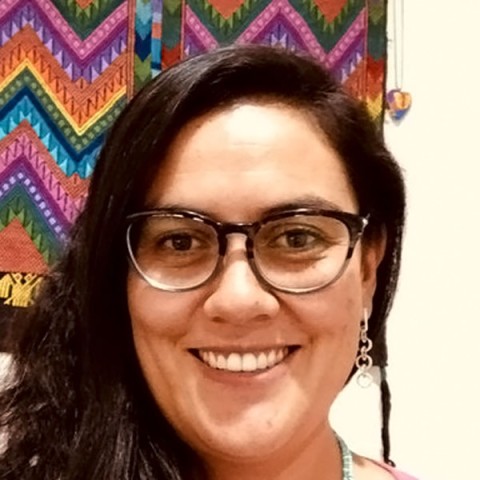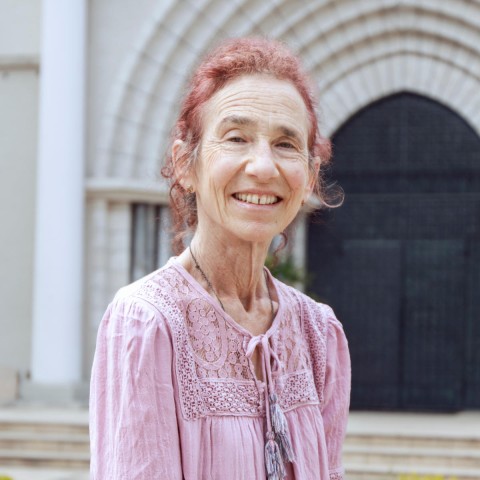Health and Equity
This line of research seeks to study how health is constructed from different critical perspectives and social contexts. It investigates the way in which sexual and reproductive rights are promoted, the resistance of indigenous peoples, the access to health of refugees and migrants, and the university wellbeing of students. It also studies the prevalence and social, demographic and health factors that influence the different diseases circulating in Ecuador.
Research Projects
Crafting narratives for change: building networks between feminist researchers and activists for advocacy for safe abortion in Latin America
Main objective: To investigate the ways in which different feminist organizations in LAC frame, prioritize and mobilize around the issue of abortion. This research will strengthen and expand feminist research and activist networks for the promotion of sexual and reproductive rights.
Organization of kichwa naporuna promoters and the Ancestral Health Council of Cotacachi as resistance to the Medical Industrial Complex in Ecuador
Main objective: To describe how health is built from the health organizations of indigenous peoples as resistance to the Medical Industrial Complex promoted by the State.
Deployment of COVID-19 Vaccines for Refugees and Migrants: Protocol for a Mixed-Method Multi-Country Study
Main objective: To analyze the compliance of COVID-19 vaccines for refugees and migrants in Ecuador through a mixed-method multi-country study.
Genotyping of hepatitis B and C virus in Ecuador until 2019
Main objective: To identify the most frequent hepatitis B and C genotypes circulating in the country.
Antimalarial Repositioning From Known Drugs and Chemical Libraries: DISCOVERING NOVEL LEADS
Main objective: Initiative aimed at the discovery of therapeutic chemical remedies to deal with one of the main protozoan diseases affecting the world's population: Malaria.
Effects of BCG vaccination on COVID-19 progression
Main objective: To correlate the prevalence of BCG vaccination and cases per canton during the course of the epidemic.
Determination of resistance patterns to antiretroviral treatment in people living with HIV in Ecuador - 2021
Main objective: Determine patterns of resistance to HIV treatment in Ecuador.
Effect of pathogens on microbiome communities and their antimicrobial resistance genes in the respiratory tract during the course of pneumonia in HIV-immunodeficient hosts treated at HEG from 2021-2022
Main objective: To track the effect of pneumonia-causing pathogens on microbial communities and their antimicrobial resistance genes during the course of infection in people living with HIV.
Knowledge, attitudes and practices on tobacco use and its alternatives in the Galapagos resident population
Main objective: To analyze the knowledge, attitudes and practices of the Galapagos population regarding tobacco consumption and its alternatives.
Test of the antioxidant activity of two compounds of the company Heel Colombia
Main objective: This proposal aims to provide a framework to test in vitro the antioxidant activity of any compound in collaboration with the Laboratory of the School of Medicine and the scientific staff.
Factors influencing Pap smear screening in Ecuador 2018
Main objective: To evaluate the social, demographic and health factors influencing Papanicolau examination in Ecuador using the most recent ENSANUT survey of 2018.
Prevalence of cervical cancer in Pichincha 2010-2020
Main objective: To evaluate the prevalence of cervical cancer in Pichincha between 2010 and 2020 and examine existing disparities in the prevalence of the disease in different social groups.
Educational program of child self-protection behaviors family and community version, through the validation of the KIT MY SHIELD family version in a population of children from 7 to 12 years old
Main objective: To determine the acquisition of knowledge and attitudes of participating children between 7 and 12 years old who are part of the families of the workers of GROW FLOWERS PRODUCCIONES SA, through the contrast of baseline measurements after the implementation of the kit MY SHIELD family version.
Qualitative study to evaluate the acceptance, effectiveness and feasibility of the implementation of HPV self-testing for cervical cancer prevention in the Checa health center, metropolitan area of Quito, Pichincha province, 2021
Main objective: To evaluate the acceptance, effectiveness and feasibility of the implementation of HPV self-testing for cervical cancer prevention in a rural community of the Ecuadorian highlands.
Evaluation of an online platform for comprehensive sexuality education aimed at adolescents aged 12-19 years in Cotacachi, Imbabura, Ecuador, 2020-2022
Main objective: Evaluation of an online platform for comprehensive sexuality education aimed at adolescents aged 12-19 years in Cotacachi, Imbabura, Ecuador, 2020-2022.
University Welfare in Ecuador: Advances and Challenges
Main objective: To identify how university welfare policies, plans, projects, programs and/or services address the problems present in the university environment.
Publications
- Arteaga,E. et al. (2022). Beyond Development and Extractivism: New Paradigms for Health.Science for the People. https://magazine.scienceforthepeople.org/
- Cuvi, J. & Arteaga Cruz, E. (2022). El Sistema Plurinacional de Salud como alternativa. Antropologías hechas en Ecuador- Abya-Yala.
- Arteaga et al. (2022). C4- Development Model, Extractivism and Environment: Knitting Resistances Globally en R. Labonte y Ch. Bodini (Eds.). Global Health Watch 6.
- Arteaga-Cruz, E., and Cuvi, J. (2021). Thinking outside the modern capitalist logic: health-care systems based in other world views. The Lancet Global Health.
- Arteaga-Cruz, E.; Mukhopadhyay, B.; Shannon, S.; Nidhi, A.; and Jailer, T. (2020). Connecting the right to health and anti-extractivism globally. Saude em debate.
- Baer, R. D.; Arteaga, E.; Dyer, K.; Eden, A.; Gross, R.; Helmy, H.; and Reeser, D. (2013). Concepts of race and ethnicity among health researchers: patterns and implications. Ethnicity & Health.
- Arteaga, E. L., San Sebastián, M., and Amores, A. (2012). Construcción participativa de indicadores de la implementación del modelo de salud intercultural del cantón Loreto, Ecuador. Saude em debate.
- Hill, M. et al. (2021). Medical pluralism and ambivalent trust: pandemic technologies, inequalities, and public health in Ecuador and Argentina.Critical Public Health.
- Martens, et al. (2020). Perspectivas de bienestar en las universidades del Ecuador. Logía-UDLA ediciones: Madrid y Quito.
- Martens, C.; Martinez, A. and Yepez, A. (2020). Salud e imagen corporal en la sociedad actual: Relatos de violencia por la imagen corporal en A. Martinez (ed.), Desvelando el Iceberg: relatos de violencia sistémica.
- Terán, E. (En prensa). Deployment of COVID-19 Vaccines for Refugees and Migrants: Protocol for a Mixed-Method Multi-Country Study.
- Terán, E. (2021). Adapting for the covid-19 pandemic in Ecuador, a characterization of hospital strategies and patients. Plos One.
- Terán, E. (1997). Calcium supplementation and the risk of preeclampsia in ecuadorian pregnant teenagers.Obstetrics and Gynecology.
- Esteves, A. and Santos, D. (2014). Una mirada a la inclusión social de las personas con discapacidad: experiencia de Flacso Ecuador.Rifá, M.; Duarte, L. y Ponferrada, M. (Coords.). "Nuevos desafíos para la inclusión social y la equidad en instituciones de educación superior". Barcelona: Universitat Autónoma de Barcelona, Observatorio per la Igualtat, Universidad Nacional de Costa Rica y Miseal, 233-251.
- Newman, S. (2012). Writing Disability: A Critical History. Lynee Rienner/FirstForum Press.
- Newman, S. (2021). Hephaestus Represented: A Metis-Based Inquiry.In Disability and Art History vol.2Ann Millett-Gallant, Elizabeth Howe, Eds. Routledge.
- Newman, S. (2020). “Borderlands, Neurodiversity, and Neurodiversity: Aren´t We All Humans“Borderlands, Neurodiversity, and Neurodiversity: Aren´t We All Humans.In Defining the Boundaries of Disability: Critical Perspectives. Licia Carlson, Mathew. Murray, Eds.
- Newman, S. (2013). Rare Diseases: The Disability and Medical Model.In Orphan Diseases in the Age of Health 2.0. Rajeev K. Bali, Lodewijk Bos, M Chris Gibbons, Simon Ibell, Eds. Springer Publishers/Communications in Medical and Care Compunetics series.
- Hammonds, L. & Newman, S. (2023). Diversity and Inclusion in Mental Health: A Collaborative Online International Learning. (COIL) Experience.Creative Nursing.
- Newman, S. (2021). Thomas Elyot´s The Castel of Helth: Good Health and Good Counsel.Forum on the publication of Sullivan and Walzer’s Thomas Elyot: Critical Editions of Four Works on Counsel. David Beard, Ed. American Society for he History of Rhetoric.
- Newman, S. & Tomlinson, E. (2017). Writing on the Spectrum: Autistic Integrity, Audience, and DSM-5.Composition Studies.
- Newman, S. (2014). Portrait of Sixteenth Century Disability? Quentin Matsys’ A Grotesque Old Woman. Review of Disability Studies.
- Newman, S. (2011). Disability and Self Life Writing: Reports from the Nineteenth Century Asylum. The Journal of Literary and Cultural Disability Studies.
- Newman, S. (2010). J.M. Itard’s 1825 Study: Movement and the Science of the Human Mind. History of Psychiatry.
- Newman, S. (2009). Irreconcilable Differences? Medicine, Law, and Education in Democratic Policy Debates. Disability Studies Quarterly.
- Newman, S. (2008). An Early Sixteenth Century Optometrist’s Shop: Jacob Cornelisz. van Oostsanen’s ‘LxSiin Tiid. Hindsight: Journal of the History of Optometry.
- Cook, B. G.; Rumrill, P. D.; Beckett-Camarata, J.; Mitchell, P. R.; Newman, S.; Sebaly, K. P.; Steuernagel, G. A.; Cook, L.; & Hennessey, M. L. (2006). The impact of a professional development institute on faculty members’ interactions with college students with learning disabilities.Learning Disabilities: A Multidisciplinary Journal.
- Alejandro C. Arroliga, M.D; David L. Longworth, M.D.; James K. Stoller, M.D. (2002). Metaphorical Medicine: Using Metaphors to Enhance Communication with Patients Who Have Pulmonary Disease.Annals of Internal Medicine.
- Newman, S. (2006). Study of several involuntary functions of the apparatus of movement, gripping, and voice,” Itard, J. M. G. “Memoire sur Quelques onctions Involontaires des Appareils de la Locomotion, de la Prehension et de la Voix.
- Bustamante, G. (2022). Mental health and well-being in times of COVID-19: A mixed-methods study of the role of neighborhood parks, outdoor spaces, and nature among US older adults. Health & Place.
- Bustamante, G. (2022). The intersection of sexual orientation with race and ethnicity in cervical cancer screening.Cancer.
- Bustamante, G. (2022).The Immigrant Memory Collaborative: A community-university partnership to assess African immigrant families’ experiences with dementia. International Journal of Environmental Research and Public Health.
- Grunauer, M. & Bustamante, G. (2021). Availability and quality of grief and bereavement care in pediatric intensive care units around the world, opportunities for improvement. Frontiers in Pediatrics.
- Grunauer, M. & Bustamante, G. (2021). Pain Assessment and Management in Pediatric Intensive Care Units Around the World, an International, Multicenter Study. Frontiers in Pediatrics.
- Grauner,M. & Bustamante, G. (2021). Primary palliative care integrated model in paediatric ICU: an international cross-sectional study.BMJ Supportive & Palliative Care.
- Bustamante, G. (2021). Disparities in healthcare providers’ recommendation of HPV vaccination for US adolescents: A systematic review. Cancer Epidemiology, Biomarkers & Prevention.
- Bustamante, G. (2021). Cervical cancer screening among sexual minority women: Findings from a national survey.Cancer Causes & Control.
- Bustamante, G. (2021). Cervical cancer screening among sexual minority women: Findings from a national survey.Cancer Causes & Control. Dementia caregivers' experiences and reactions to remote activity monitoring system alerts. Journal of Gerontological Nursing.
- Bustamante, G. (2020). Cesarean section and risk of allergies in Ecuadorian children: a cross-sectional study.Immunity, Inflammation and Disease.
- Bustamante, G. (2020). HPV vaccine coverage and acceptability among a national sample of sexual minority women ages 18–45. Vaccine.
- Bustamante, G. (2019). Beyond Diversity: Focusing on and enhancing inclusion in the Society for Epidemiologic Research (SER). American Journal of Epidemiology.
- Bustamante, G. & Grunauer, M. (2019). Awareness of obstetric warning signs in Ecuador: a cross-sectional study.Public Health.
- Bustamante, G. & Grunauer, M. (2019). “I have the right to feel safe”: Evaluation of a School-Based Child Sexual Abuse Prevention Program in Ecuador. Child Abuse and Neglect.
- Bustamante, G. (2018). Presence of the Carcinogen N′-Nitrosonornicotine in Saliva of E-cigarette Users. Chemical research in toxicology.
- Sevilla, E. and Sevilla, A. (2020). The “Controversial Cundurango Cure”: Medical professionalization and the global circulation of drugs. Science in Context, 33.
Workshops
At the Institute for Advanced Studies in Inequalities we offer workshops in:
- Workshop on sexual and reproductive health rights.
Alliances
- University of Geneva - World Health Organization (WHO).
Researchers

Erika Arteaga Cruz
MD,MPH (University of South Florida, Fulbrighter 2005- 2007), PhD candidate in Collective Health, Environment and Society (Universidad Andina Simón Bolívar), mother of two wawas and feminist. She is coordinator of the Ecosystems and Health circle of the People's Health Movement and member of the Latin American Association of Social Medicine - Ecuador. She is an advisor to the School of Midwives of the Jambi Warmikuna Ancestral Health Council of the Union of Peasant Organizations of Cotacachi (UNORCAC). Member of the editorial committee of the Intercutural magazine ÑAWPA and part of the Plurinational and Popular Parliament of Women and Feminist Organizations. Research interests: Interculturality, social movements, social determination of health, feminisms, plurinationality, ways of life of peoples and nationalities, epistemology of health.

Enrique Eduardo Terán Torres
Doctor in Pharmacology (PhD) from the University of London in England. For more than two decades he has been working on stigma and discrimination, particularly in access to health services, both for minority populations (indigenous and black) as well as people living with HIV and LGTIB. Her areas of interest and research include the pathophysiology of pregnancy-induced hypertension (pre-eclampsia) which is the leading cause of maternal death in Ecuador, ranging from molecular aspects to clinical intervention. As well as metabolic diseases, having ventured into diabetes, hypertension and dyslipidemia; the consequences of these and their treatment. Interested in infectious diseases, particularly the human immunodeficiency virus (HIV), and pioneer in the study and development of pharmacogenetics in Ecuador.

Sara Joanne Newman
PhD in Rhetoric from the University of Minnesota. Her research, teaching, and service activities focus on Disability, Medicine, Health, and Science; more specifically, she examines the ways in which the notion of disability is culturally constructed across time periods, cultures, and places, the ways in which these constructions shape power relations, and the ways in which disabled and oppressed people can be rehabilitated. She has published widely on these topics and is the author of three scholarly texts on issues of rhetoric and disability, e.g., Writing Disability: A Critical History 2013. She is currently working on a project on disability and indigeneity with Scott Thomas Gibson and Maria Antonia Carcelén.

Maria Cristina Crespo
Industrial Psychologist from the Pontificia Universidad Católica del Ecuador, Master in University Teaching; PhD in Humanities and Arts, mention in Education, at the Universidad Nacional de Rosario. Argentina. She is a member of research teams of the Psychology career, in topics related to the evaluation of educational interventions in student populations.

Gabriela Bustamante Callejas
PhD in Environmental Health from the University of Minnesota and MPH from Columbia University. Her specialization is in Environmental and Occupational Epidemiology and her postdoc focuses on cancer disparities. Her current research interests are threefold: (1) global and national cervical cancer prevention and disparities, with particular emphasis on populations with minority social identities (2) Influence of built environments, particularly urban neighbourhoods, on cancer and other chronic diseases with particular emphasis on migrants, and (3) adolescent sexual health and child sexual abuse prevention.